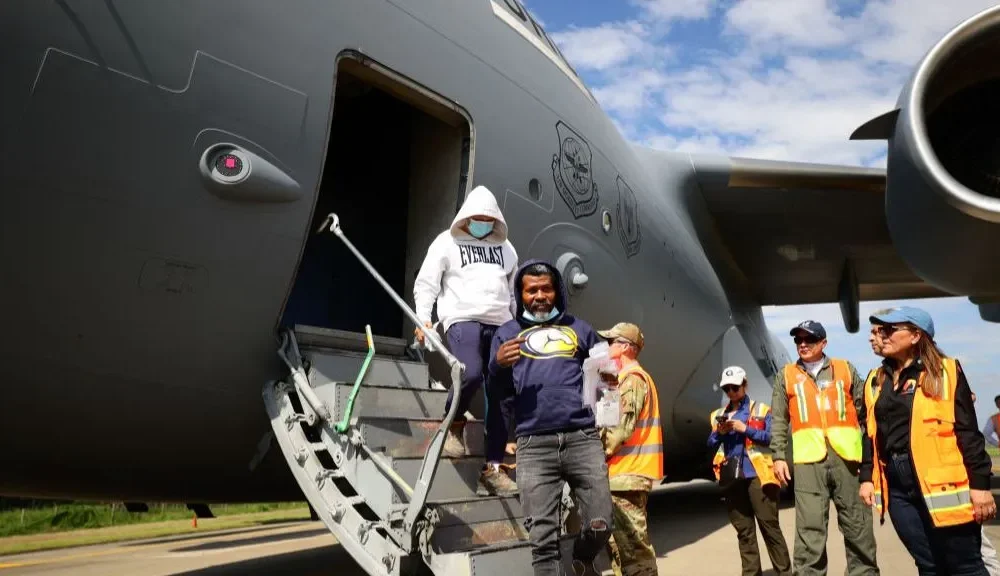
Uganda has signed a formal agreement with the United States to temporarily host migrants who are denied asylum on American soil, officials confirmed on Thursday.
The arrangement specifically excludes unaccompanied minors and individuals with criminal records, and primarily targets African nationals.
Vincent Bagiire, Uganda’s Permanent Secretary at the Ministry of Foreign Affairs, described the deal as a supervised bilateral cooperation aimed at examining protection requests from people who refuse or fear returning to their country of origin.
“The arrangement is temporary and subject to strict conditions,” he said, stressing that “individuals with criminal records and unaccompanied minors are not affected.”
Authorities in Kampala have emphasized that the agreement is designed to safeguard Uganda’s security while fulfilling commitments under broader diplomatic and bilateral cooperation frameworks.
Since Donald Trump’s return to the White House in January 2025, the US administration has expanded similar agreements with countries including South Sudan, Eswatini, and El Salvador.
In some cases, migrants were sent to countries other than their countries of origin, drawing criticism from international NGOs and legal experts. Critics argue that such transfers risk violating the principle of non-refoulement, a cornerstone of international refugee law prohibiting the return of individuals to territories where they may face persecution.
For Uganda, officials present the agreement as a diplomatic extension of their international partnerships, highlighting opportunities for cooperation with the United States. Observers, however, warn of potential humanitarian consequences, noting that the arrangement places additional responsibilities on host countries and may strain local resources.
This agreement reflects Washington’s ongoing strategy to consolidate its migration policy by delegating the reception of migrants to partner nations. While Kampala frames the initiative as a cooperative effort, the deal continues to spark debate internationally over its legal, ethical, and humanitarian implications.



